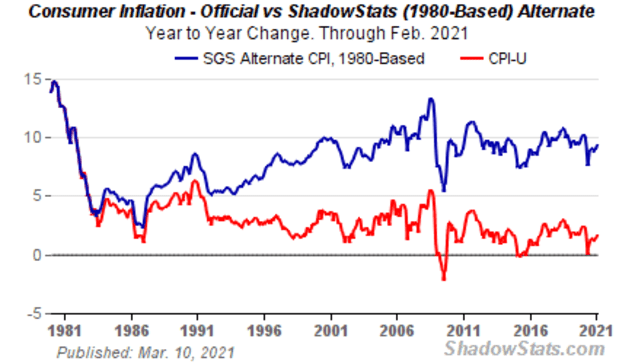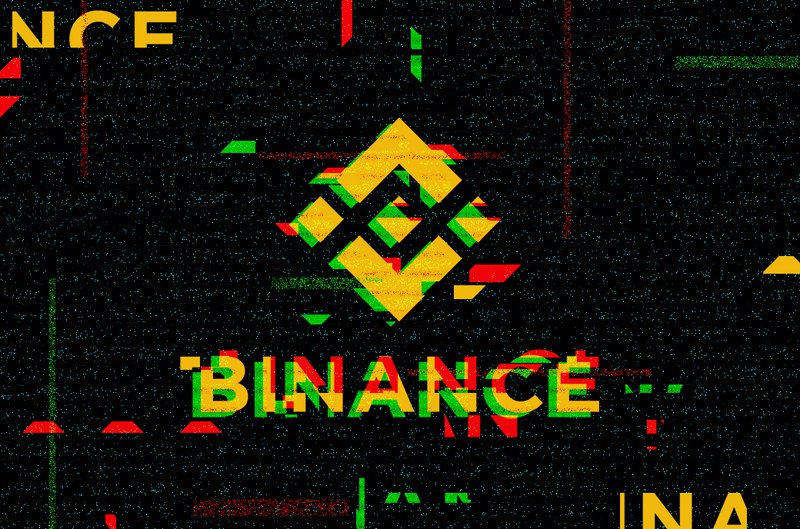In Senate Hearing, Facebook’s Iffy Reputation Looms Over Libra Plans
Today, Libra project head David Marcus testified in front of the United States Senate Banking Committee on Facebook’s incipient “cryptocurrency.” The discussion was largely overshadowed by Facebook’s tarnished reputation for user privacy and the mistrust its business practices have engendered.
Facebook announced Libra a little less than a month ago, but the idea of it has already captivated lawmakers and regulators around the globe. From the day of its unveiling, officials have raised concern over consumer data integrity/privacy, anti-money laundering (AML), terrorism financing and the fact that Facebook has proposed a de facto central bank not unlike a corporatized Federal Reserve.
But the hearing was the first (but certainly not the last) chance government officials have had to grill a Facebook employee about these concerns to learn more about what exactly they’re dealing with here. Some launched into the usual banal inquiries regarding AML, but they also dove into more nuanced territory of Libra’s implications for antitrust laws and the U.S.’s role in their development (and the development of the wider crypto industry).
The final result is a cocktail of opinions on Libra (and Facebook), which spans from the viscerally disconcerted to the cautiously curious to the eagerly optimistic.
Libra Could Deliver “Material Benefits”
Senate Banking Committee chairman Senator Michael Crapo opened the hearing to say that its primary objectives were to address how Libra works, its level of access to consumer info, its commitments to user/data privacy, how Libra will be managed and how the interaction/association between Facebook and the Calibra wallet will be structured. Echoing Federal Reserve chairman Jerome Powell’s reservations when speaking on Libra in his semiannual Monetary Policy Report to Congress, Crapo raised typical concerns about money laundering, how Libra may relate to the Bank Secrecy Act and “ways that Libra could threaten financial stability.”
Senate Banking Committee chairman Michael Crapo
Still, he believes that Facebook’s stated goals for creating Libra, in particular its self-declared philanthropic goal to bank the unbanked, are “commendable.”
“If done right, Facebook’s efforts to leverage existing and evolving technology and make improvements to traditional and non-traditional payment systems could deliver material benefits, such as expanding access to the financial system for the underbanked and providing cheaper and faster payments. Still, Libra is still based on a new and continually evolving technology on which it is not entirely clear as to how existing regulations apply,” Senator Crapo said in the opening remarks.
A Lack of Respect for the “Power of Technologies”
Others, like Senate Ranking Member Sherrod Brown, displayed a less-than-positive outlook on Libra’s potential.
“Facebook is dangerous,” he said emphatically in his own opening remarks. “Now, Facebook might not intend to be dangerous, but certainly they don’t respect the power of the technologies they’re dealing with. Like a toddler who has gotten its hands on a book of matchers, Facebook has burned down the house, over and over, and called every arson a learning experience.”
Senator Brown went on to criticize Facebook’s handling of Russian infiltration of the platform to sway voters in the 2016 presidential election, its experimentation on whether or not it can manipulate user emotions (it can), and Facebook’s failures to curb hate speech and fake news that led to a genocide in Myanmar.
“They moved fast and broke our political discourse, they moved fast and undermined our democracy, they moved fast and broke journalism,” Senator Brown raved. “Now Facebook has asked people to trust them with their hard-earned paycheck.”
“Trust is primordial and we’ve made mistakes in the past,” David Marcus responded. “We will take the time to get this right. We are fully committed to working with regulators in the U.S. and elsewhere.”
Marcus also claimed that “Libra [will not] position itself to compete with sovereign currencies or interfere with monetary policy. In fact, Libra will work with the Federal Reserve and other central banks.” That Libra is strictly not a bank was a recurring tenet in Marcus’s testimony. (Udi Wertheimer cheekily pointed out that shortly after the hearing, Libra retweeted a Wall Street Journal article heralding it as “a de facto central bank.”)
Notwithstanding Facebook’s (non)status as a banking institution, Marcus said that Libra is working with the Financial Crimes Enforcement Network (FINCEN), the Office of Foreign Assets Control (OFAC) and the Commodity Futures Trading Commission (CFTC) to hammer out the regulatory kinks, and that he is “[p]roud to have initiated this effort in the U.S. I believe that if America doesn’t lead innovation in digital currencies and payment areas, others will.”
Addressing Global Anti-Money Laundering Concerns
Why, then, is Libra incorporated in Switzerland, a couple of senators queried. Brown, for instance, believes that the “United States should establish the rules of the road for Libra and other similar digital currency initiatives.”
“You’ve chosen to set this up in Switzerland. What did Switzerland offer that the U.S. did not?” Senator Mike Rounds asked.
“We believe that a global, digitally native currency would benefit from being headquartered in an international place that is also the home of many respected international organizations,” Marcus answered, reinforcing that it has nothing to do with evading oversight. “The reality, though, is many of the Libra association members are U.S. entities,” and so will be subject to U.S. jurisdiction, he conceded.
This seemed to satisfy the concerns of senators who were fretting over money laundering and keeping bad actors off the platform. For instance, Marcus emphasized that to use the Calibra wallet, every user must register with a government-issued ID and that the Calibra wallet (and certified, registered Libra service providers) will abide by the Bank Secrecy Act’s travel rule to report information on transfers exceeding $1,000.
Internal Governance and Privacy
Other senators, however, were more concerned with Libra’s internal operations. They wanted to know, for example, whether or not it will seek to monetize user data and if this information will commingle with personal user info on Facebook’s social media platform. Such concerns prompted Crapo to recommend that the U.S. implement something like the EU’s GDPR “to give users real control over their own data.”
“Facebook will only be one of 100 members of the Libra Association and will have no special privileges, [which] means that you will not have to trust Facebook,” Marcus said at one point in the hearing, adding multiple times throughout that neither Libra nor the social media titan have plans to monetize user financial information.
Of course, practice is different than promise, a handful of senators pointed out, as Facebook’s penchant for collecting and sharing user data without disclosure has shown.
“Catch and Kill”: Addressing Antitrust Concerns
Senator Mark Warner, an outspoken advocate for Bitcoin, looked beyond the potential for data abuse to the topic of trust busting. His questions, relating them specifically to Microsoft’s antitrust case with Congress in 2001, focused on how much Facebook’s Libra will be committed to free and fair competition — or how determined it will be to choke it out.
“The Justice department found that a key strategy that Microsoft used — which was called internally embrace, extend, extinguish — the strategy was to find new technology and either copy it or buy it up. I call it ‘catch and kill.’ It [is] a methodology that Facebook has used extraordinarily effectively,” he said, asking why Libra isn’t just “another manifestation of catch and kill.”
“We relinquish our control over both the codebase and the network,” Marcus replied, stating that the project is “open source” (Jameson Lopp, who reviewed Libra’s Github on the day of the white paper’s release, says this amounts to an API standard for developers, who can submit requests but not work on the code without permission).
Warner was particularly interested in whether or not Facebook’s Messenger and WhatsApp applications would support other wallet and services providers. Marcus said that Calibra users can send their Libra to any supporting wallet, a reply that Warner saw as tantamount to dodging the question.
“It is a nuanced question. If you’re asking if there will be other wallets embedded into WhatsApp and Messenger, the answer is no.”
As the hearing drew to an end, senators bounced around questions regarding Libra’s leadership and governance model under the 100-company umbrella that is the Libra Association and what Facebook’s endgame is. Senator Tina Smith, following Warner’s logic, believes this endgame includes swallowing as much wallet market share as possible.
Senator Martha McSally raised the privacy alarm, as well, chastising that “[i]nstead of cleaning up [its] house, now [Facebook is] launching into another business model with Libra,” preaching about commitments to user privacy without setting a precedent for actually protecting user info.
Reinforcing this sentiment, Senator John Kennedy asked, “Can we agree that a banker should be trustworthy … honest … should respect a customer’s privacy?”
“Yes, senator, but we are not engaging in banking,” Marcus responded, a bit ruffled.
In the End, Do We Trust Facebook?
At the core of the rhetorical question is how Facebook says one thing and does another, particularly when it comes to its promiscuous mingling of user data with third parties while giving the impression that this info is in a walled garden of only Facebook’s influence. Other concerns Kennedy cited include the Russia infiltration, how senior management knew about this infiltration in spring 2016 but didn’t disclose until fall of 2017, and how the platform’s been sharing data with device manufacturers.
By the end of the testimony, Senator Brown returned to this problem of trust: “Almost no one in this committee does” trust Facebook, and the company has done nothing to earn it. They’ve mucked up data, so why should we let them control money, too?
This attitude, which punctuated many senators’ remarks, could rightly be summed up by the concluding question in Senator Kennedy’s first round of queries:
“Facebook now wants to control the money supply. What could possibly go wrong?”
The post In Senate Hearing, Facebook’s Iffy Reputation Looms Over Libra Plans appeared first on Bitcoin Magazine.









